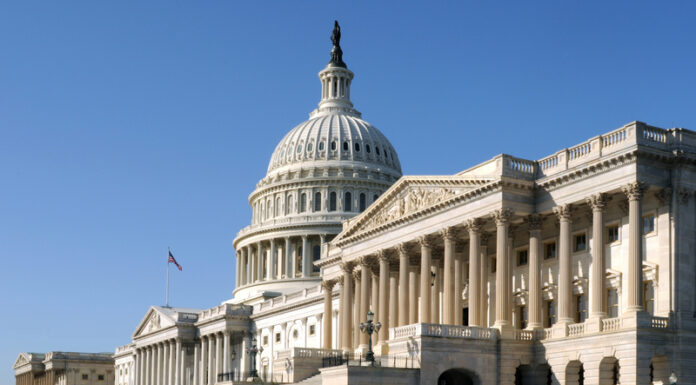Senator Jeanne Shaheen, a Democrat from New Hampshire, announced on Wednesday, March 12, 2025, that she will not seek re-election in 2026. This decision sets the stage for a competitive and costly Senate race.
In a video message, the 78-year-old Shaheen stated, “Today, I am announcing that I have made the difficult decision not to seek re-election to the Senate in 2026.”
Shaheen explained that “it’s just time,” but emphasized she has no intention of leaving office early. She declared that she is not retiring and remains committed to serving New Hampshire and the nation over the next two years and beyond.
Shaheen, the top Democrat on the Senate Foreign Relations Committee, made history as the first woman to be elected governor of New Hampshire and the first woman nationwide to serve as governor and a U.S. senator. Her decision ends a notable political career in New Hampshire politics.
Shaheen cited the current political climate in her decision, expressing concerns about President Trump’s focus on political retribution, budget cuts, and antagonism toward Ukraine. She also highlighted the need for new leadership in New Hampshire and the country.
Her retirement marks the third Democratic Senate departure in potentially competitive states for the 2026 election cycle. Senator Gary Peters of Michigan announced in January that he would not seek re-election. Senator Tina Smith of Minnesota is also retiring next year.
Republicans currently have a 53-47 advantage in the Senate, meaning Democrats need to gain four seats to secure a majority, as Republicans hold the vice presidency for tie-breaking votes.
The open seat in New Hampshire is expected to draw significant interest from both parties. Former Republican Senator Scott Brown, who lost to Shaheen in 2014, is reportedly considering another run. Brown was seen meeting with Senate Republicans at the Capitol and mentioned his potential candidacy to Semafor media.
On social media platform X, Brown acknowledged Shaheen’s service and hinted at a potential run, stating New Hampshire needs a representative who supports the Trump agenda.
Former Republican Governor Chris Sununu is another potential contender. Though previously declining a Senate run, Sununu told The Washington Times that he has not entirely ruled out the possibility.
On the Democratic side, Representative Chris Pappas is reportedly considering a Senate bid. First-term Representative Maggie Goodlander, according to sources familiar with her plans, is also weighing a potential run.
Former Democratic Representative Annie Kuster has indicated she will seriously consider entering the race if Pappas opts not to run.
New Hampshire Democratic Party Chairman Ray Buckley described the upcoming contest as the “premier U.S. Senate race in the country,” highlighting the high stakes for both parties.
State Democratic strategist Jim Demers noted the challenges Democrats will face without Shaheen on the ballot, predicting a more competitive and costly race. He also highlighted New Hampshire’s sizeable independent voter population, which can sway elections.
The political landscape in New Hampshire is mixed. While Democrats hold the entire congressional delegation, Republicans control the governorship, state legislature, and executive council majority.
The state’s competitive nature was evident in the 2024 presidential race, where Democrat Kamala Harris narrowly won by three percentage points. However, Republican Kelly Ayotte secured the governorship, defeating Democrat Joyce Craig by nine percentage points.
Ayotte is the last Republican to represent New Hampshire in the Senate, though she lost her re-election bid in 2016 to Democrat Maggie Hassan. Ayotte succeeded Republican Chris Sununu as governor, maintaining GOP control of the state’s executive branch.
National Republicans are optimistic about flipping the seat. National Republican Senatorial Committee Chairman Tim Scott of South Carolina expressed confidence in New Hampshire electing a Republican in 2026.
Democrats remain hopeful about retaining the seat. Democratic Senatorial Campaign Committee spokesman David Bergstein noted that no Republican has won a Senate race in New Hampshire for over a decade, and the growing midterm backlash against Republicans could impact their candidates.
Political analysts classify the race as competitive but leaning Democratic. As of early 2025, Inside Elections, The Cook Political Report, and Sabato’s Crystal Ball rate the New Hampshire Senate race as “Lean Democratic.”
The 2026 election is scheduled for November 3, with the primary earlier that year. State election officials have not yet announced the candidate filing deadline.








